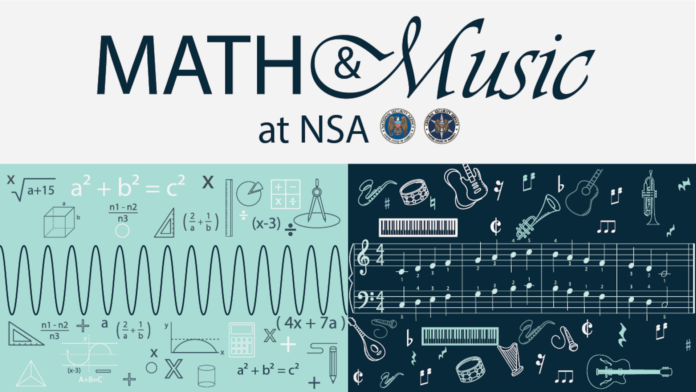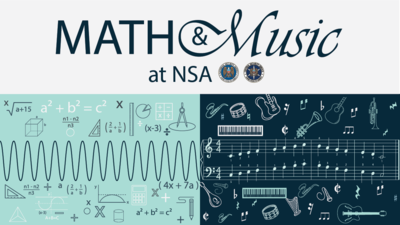FORT MEADE, Md. – Cynthia W. was job searching in 2003 when she came across an opening on NSA.gov.
No specific major is targeted for cryptanalysis,” the site read. “NSA hires people with technical and non-technical degrees, ranging from mathematics to music, engineering to history, and computer programming to chemistry.
Cynthia always enjoyed and excelled in math and computer science in school. She also happened to have both Bachelor’s and Master’s degrees in music theory and was working toward a doctorate in music theory when the events of 9/11 caused her to rethink her career path.
Cynthia had never heard of NSA, but given her skill with math and computers and her training in musical theory and composition, it appeared the Agency might be a perfect match.
At first glance, it might seem unlikely that someone whose higher education was focused on music theory and composition would have a successful technical career at NSA, but there is a strong connection between music theory, performance, and composition and math comprehension that has been studied by academics for decades.
Like Cynthia, whose most recent role at NSA was as chief operations officer of the Cybersecurity Collaboration Center, employees and leaders with mathematics and computer science backgrounds who also excel in music — many at the professional level — are found across the NSA workforce.
Joseph C., deputy chief of Cryptanalysis and Signals Analysis and a jazz clarinetist, said, “The people we hire for the various development programs supporting cryptanalysis, or for our summer programs, do seem to have more than a random rate of intersection with musical training.”
LeRoy W., program executive of the Cryptologic Mathematician Program, observed that students in the program who excel in both music and math have impressive perseverance skills, particularly in challenging mission areas.
“[Musicians often have] more complex brain patterning, as well as greater organizational and higher-order executive functioning,” said Natalie Sarasin, author of “Music and the Child.” This includes mathematical comprehension.
Elise F., a development specialist, has two degrees in math and is also a professional musician and vocalist. She explained that her brain is “wired for math.”
“I like and have always been good with puzzles and math. I was drawn to ciphers and codes at an early age,” Elise said, admitting that she connected her love of math to the mathematics inherently found in music. “The concept of the division of time, even pitch, it’s all very mathematical.”
According to Sarrazin, “Performing music involves all regions of the brain. … It speeds up communication between the hemispheres and affects language and higher-order brain function.”
Michael O., a member of NSA’s mathematical research leadership team, is also a lifelong musician.
“When we listen to music, our brains are processing complex patterns and relationships in real time, with relative ease, whereas patterns of that complexity in any other setting would be difficult to absorb,” he said, explaining his understanding of the connections between math and music.
Joseph concurred from his jazz background: “The presence of improvisation as a fundamental building block opens up this entire other world where you are literally forced to make creative decisions about deployment of that technique on the spot.”
NSA employees are committed to their daily work of defending the nation, and to building their skills to ensure they’re at the forefront of their fields. Given the connections between music and math, then, it’s no surprise that there is a group of mathematician a cappella singers, the Crypt ones, who arrange and perform original songs at NSA functions, including math development program graduation ceremonies.
As with any a cappella group, there’s always room for another voice in cryptanalysis at NSA. Learn more about jobs at NSA by visiting NSA.gov/Careers, and apply at intelligencecareers.gov/nsa.
The opinions expressed in this article are those of the authors and do not reflect official positions or policy of the Agency or the Department of Defense.




